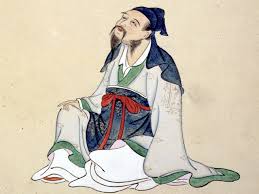
I can’t tell you how many people associate artistic genius with substance abuse. History, they say, proves their point. Romantic poets (e.g. Coleridge) on opium. Not-so-romantic poets (e.g. Bukowski) on booze. And writers of all stripes (e.g. Poe) on most everything, some of which land you in a Baltimore gutter for good (“Nevermore…”.)
For some reason, when it comes to writing, insomnia gets the same benefit of the doubt as heavy drinking and other alternate states (e.g. New Jersey). Surely the insomniacs who can’t sleep must be writing a lot. Good writing, too. Ethereal writing, On-fumes writing. Almost-out-of-gas writing.
Yes and no. Being up in the thin hours of the night may open up a whole new savannah of time for writing, but under what conditions? Each night I fall asleep with ease. My insomnia profile is of the mid-night wake-up variety. Thus, after, say, four or five hours of sleep, I wake up and my body thinks it’s refreshed and ready to go. Lying in bed to beg more hours of shut-eye does no good. Counting sheep does no good. Even counting iambic beats to Shakespearean sonnets does no good.
So I get up, often writing to pass the hours. It may increase production, but the quality is suspect. Around two hours after fleeing the bed, my energy begins to sap like maple syrup in March. Drip, drip… drip. Suddenly I crave sleep again. Trouble is, it’s time to go to work. And that can make for a long day.
Drinkers (of which I am not one) know that alcohol giveth and alcohol taketh away. You get your buzz and own the world (well, rent it for an hour, maybe), and then it comes back to collect. Too much alcohol messes up sleep, makes a Benedict Arnold of your stomach, fords a D-Day in your head. Have fun writing under those conditions.
So don’t romanticize or misrepresent the role of substance or sleep abuse in the name of creativity. Like the Wizard of Oz, it’s more smoke and mirrors than reality. Paying attention to that man behind the curtain, you realize that the best writing occurs when you treat your body like a temple. A well-rested temple.








